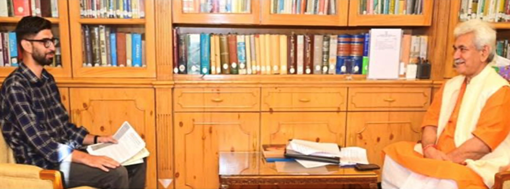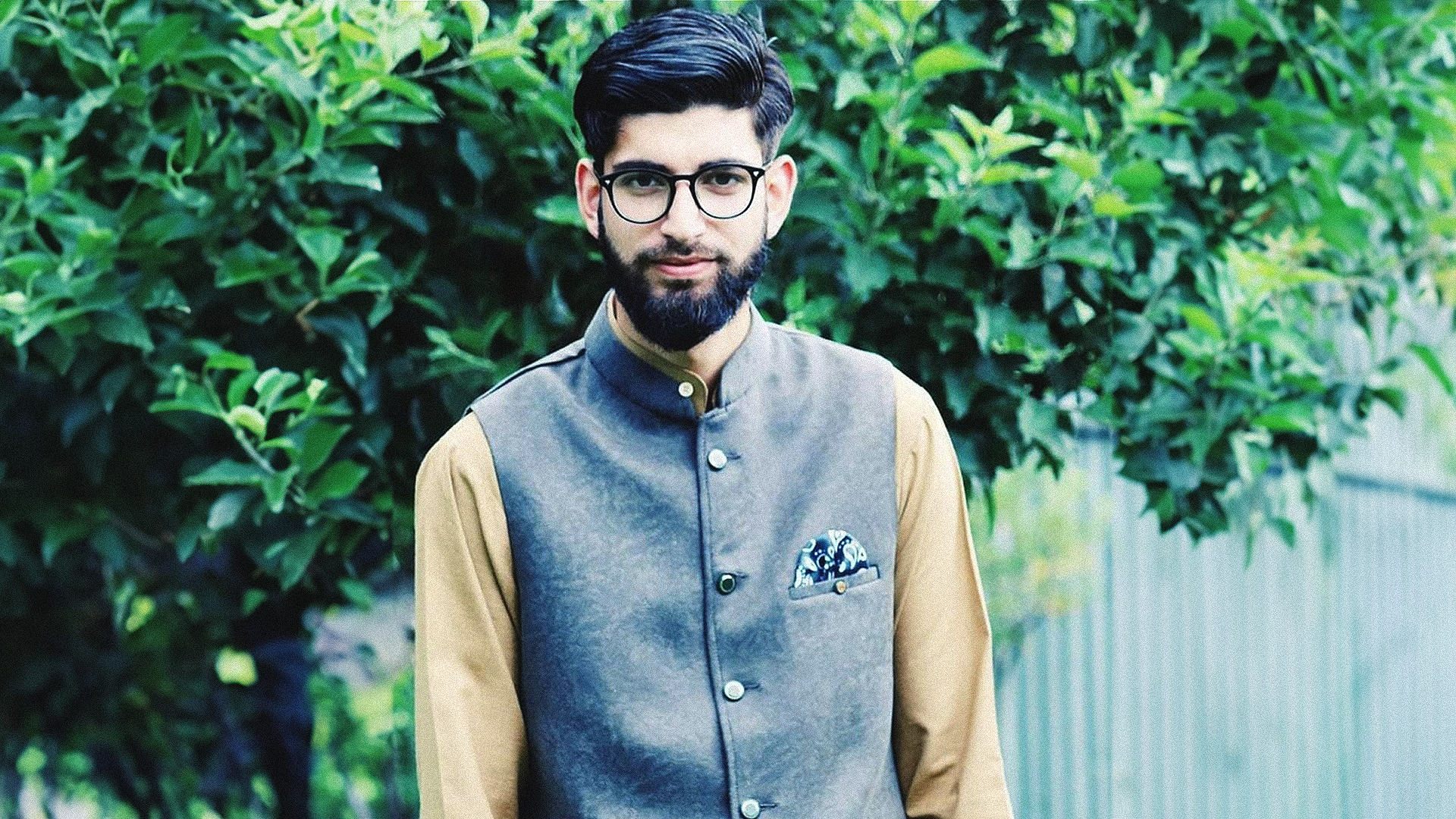We spoke with student activist and National Convener of Jammu & Kashmir Students’ Association about his work towards ensuring the safety and security of Kashmiri students by coordinating evacuations, relief drives, and protests.
‘I am duty bound to try and help’, says Nasir Khuehami while echoing his motto as National Convener of the Jammu & Kashmir Students’ Association (JKSA) and advocate for the welfare of Kashmiri students across the globe.
At present, Nasir is pursuing a postgraduate degree in Conflict Analysis and Peace Building from the prestigious Jamia Milia Islamia University in Delhi.
Whilst Khuehami managed to carve a niche out for himself in the sphere of student activism, he shares that initially his parents dreamt of admitting him to a medical or engineering program. However, he had different aspirations and mentioned to Thred, ‘I wanted to do something extraordinary’.
So having seen the ground reality of Kashmir, the daily struggles of common people was something that always remained at the back of his mind. Hailing from a small settlement in Kashmir’s Bandipora district, Nasir describes himself as a ‘village boy’.
And when asked about his experience growing up in his hometown, he says that he has seen first-hand how the poor scramble to access district institutions; ‘DC (District Commissioner) se milne ke liye usko pachaas baar sifaarishein karaani padti hai’ (the common man has to submit several requests to approach the district commissioner), he says.
With a finger on the pulse of the valley and a determination to find a meaningful purpose in life, he moved to an Indian state not very far from the valley- Uttarakhand. Here, he pursued an undergraduate degree in Journalism and Mass Communication from Hemvati Nandan Bahuguna Garhwal University.
During this time, Nasir was also doing a few social work projects and contributing to local newspapers on topics such as politics, education, and tribal affairs.
But, nothing prepared him for the harassment of Kashmiri students that he was about to witness. He even shared an instance from his own time as a student, saying, ‘Even in my practical exams, I was asked, “Do you think Burhan Wani (separatist leader) was a terrorist?” So, I told them I am not able to respond to this question. But somehow I was forcibly asked to respond.’
When Khuehami resisted, he was told that his marks would be deducted accordingly.
In 2016, when certain Kashmiri students were harassed and thrashed by goons from the right-wing organisation Bajrang Dal in Dehradun’s Combined (P.G.) Institute of Medical Sciences & Research, Nasir was determined to avail justice for them.
So, he dialled Fairoz Khan who was the NSUI (National Students’ Union of India) National President at the time; he also spoke to then Inspector General of Police CID in Kashmir, Abdul Ghani Mir, asking him to intervene.


‘I was able to address this issue at 11:30 pm’, says Khuehami.
Not long after, he was contacted by CIMS Director Dr Jaduan, who provided a handwritten letter, stating that Kashmiri students would not be targeted in his university, even granting them a two-month-long holiday to reunite with their family.
‘This is where my activism journey started. But after some time, I thought to launch a student organisation apart from my journalism so that it will give some sort of a voice to Kashmiri students where they will be able to raise their issues with relevant and concerned authorities.’, says Nasir.
So, he launched the Jammu & Kashmir Students’ Association (JKSA) unofficially in 2017. And only a year later, he decided to expand the organisation, setting up contacts in several universities across the country. With this, JKSA began their country-wide journey to ensure the safety and security of Kashmiri students.




















